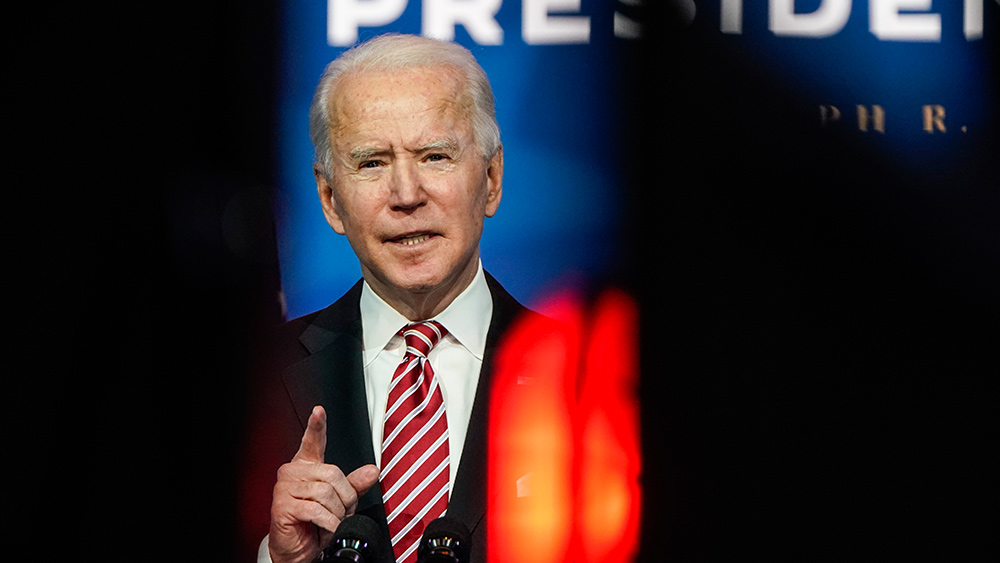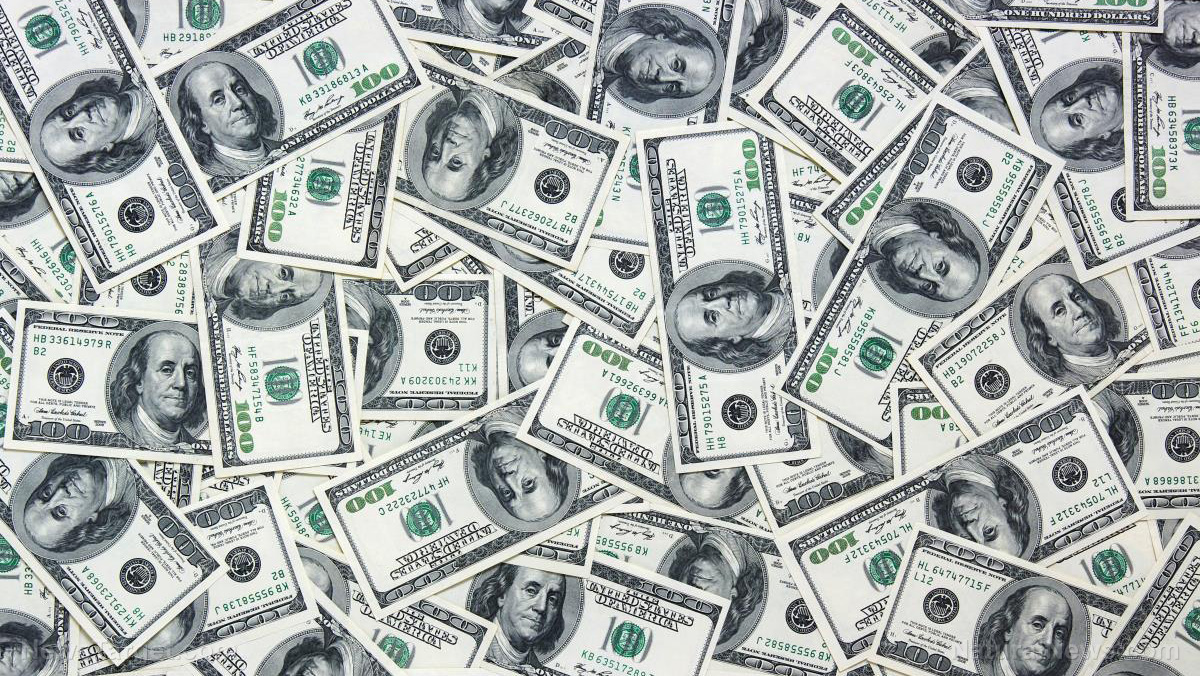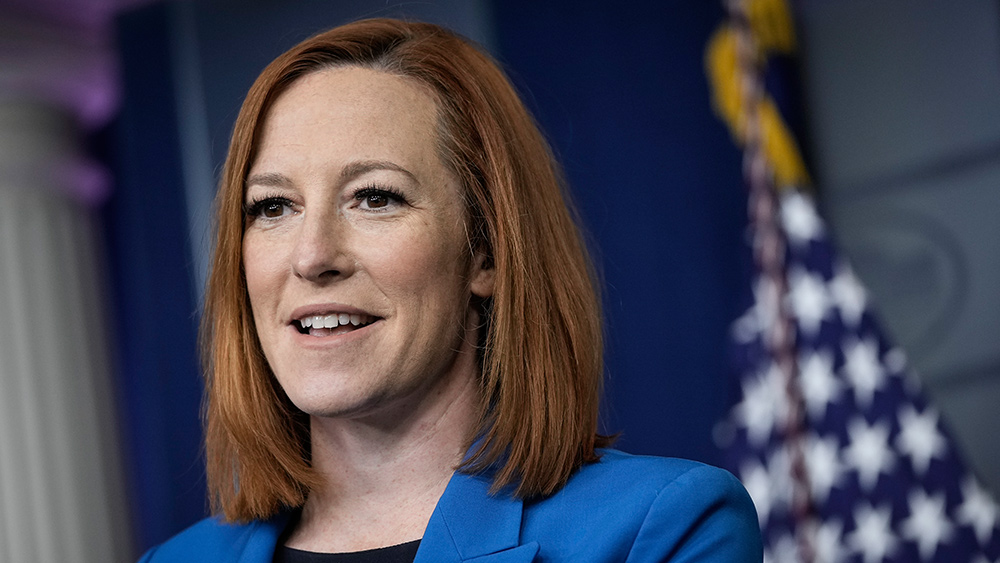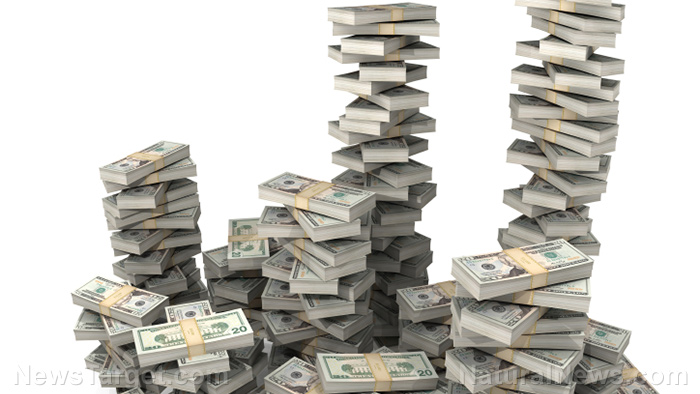America’s richest have obtained 16 times more wealth than bottom 50% combined
06/29/2021 / By Franz Walker

Data released by the Federal Reserve on Monday, June 21, shows that the wealthiest 1 percent of Americans have 16 percent more wealth than the bottom 50 percent combined.
A previous report from the Fed showed that, overall, wealth across all U.S. households increased during the first quarter. The net worth of households and nonprofits rose to $136.9 trillion during this period, an increase of 3.8 percent from 2020.
But that increase wasn’t distributed equally. The bottom 50 percent of Americans only controlled about $2.62 trillion collectively. The top 1 percent, on the other hand, controlled about $41.52 trillion during the same period.
Wealth went up, but it went mostly to the rich
According to the Fed’s data, the recent gains in American household wealth can be attributed to stock holdings, which were up about $3.2 trillion.
But critics are contending that the Fed’s low interest rate policies have also played a role. These have boosted the stock market, giving an edge to those who own stocks and investments. Around 89 percent of stocks and mutual funds held in the U.S. as of the first quarter of 2021 are owned by the wealthiest 10 percent of Americans. Meanwhile, only 0.5 percent are held by the bottom 50 percent of U.S. households.
“High-wealth households do much better in a low-rate environment than lower-wealth households do,” said Moody’s Analytics chief economist Mark Zandi. “The low-interest environment increases inequality by increasing the wealth of people who are well off.”
That said, Zandi noted that less well-off people don’t lose money because of the low rates. Rather, they simply don’t do as well as wealthier people.
The Fed’s easy money policies have also benefited real estate prices. But unlike stocks, home ownership is much more evenly distributed. Fed data shows that the wealthiest 10 percent only own about 45% of real estate held by U.S. households, with the remainder largely owned by middle-class households.
But the increase in homeowners’ equity is negligible compared to the inequality brought about by the stock market’s rise. After bottoming out early last year, stocks have now gained about $22.4 trillion in value, based on numbers from the Wilshire 5000 Total Market Index. But America’s total home equity – the value of houses less the debt on them – rose by only $1.3 trillion based on Fed data.
Low interest rate policies, budget deficit to blame
On Tuesday, June 23, Federal Reserve Chairman Jerome Powell released a written statement acknowledging that while the U.S. economy has seen “sustained improvement” since the Wuhan coronavirus (COVID-19) pandemic started, the bounce back has not been equal.
“The economic downturn has not fallen equally on all Americans, and those least able to shoulder the burden have been the hardest hit,” Powell said, noting that unemployment persists among lower-ware workers in the service sector and among minorities.
But even as Powell acknowledged the inequality, some experts point to the Fed and the government’s policies – focused on bailouts and low interest rates – as the reason for it. (Related: Noted economist warns Biden’s massive COVID stimulus will lead to exploding inflation and high interest rates across America.)
“Inequality is a cumulative process,” said Karen Petrou, managing partner at Washington-based consulting firm Federal Financial Analytics. “The richer you are, the richer you get, and the poorer you are, the poorer you get, unless something puts that engine in reverse. That engine is driven not by fate or by untouchable phenomena such as demographics but most importantly by policy decisions.”
The federal government is currently running up record budget deficits thanks to its stimulus packages, with more to come as the Biden administration pushes a $2.3 trillion infrastructure bill.
A large part of the current and future deficits will be indirectly financed by the Fed, which has been increasing its holdings of Treasure IOUs and mortgage-back securities by at least $120 billion a month. It has also directed its trading desk to increase purchases “as needed” to maintain smooth functioning in financial markets.
But when the Fed buys securities, it does so with money that it creates out of thin air. Doing so increases the money supply in the financial system and some of that makes its way into the stock market, boosting prices. This benefits those who own stocks, primarily America’s wealthiest.
President Joe Biden is looking to make tax increases a big part of his infrastructure pitch, which in theory would make it less reliant on the Fed. But this doesn’t mean that the taxes will be able to cove its costs and that the Fed won’t have to keep pumping money – spending is a lot more popular after all than raising taxes.
When asked about this by ProPublica, representatives from the Fed, the Treasury and the White House declined to discuss the impact that soaring stock prices, spurred by their current economic policies, have had on economic inequality.
Follow NationalDebt.news for more on how the government’s current economic policies are worsening inequality in America.
Sources include:
Tagged Under: coronavirus, covid-19, debt, economics, Federal Reserve, finance, inequality, monetary policy, money, pandemic, spending, Wall Street, White House
RECENT NEWS & ARTICLES
COPYRIGHT © 2017 NATIONAL DEBT NEWS




















